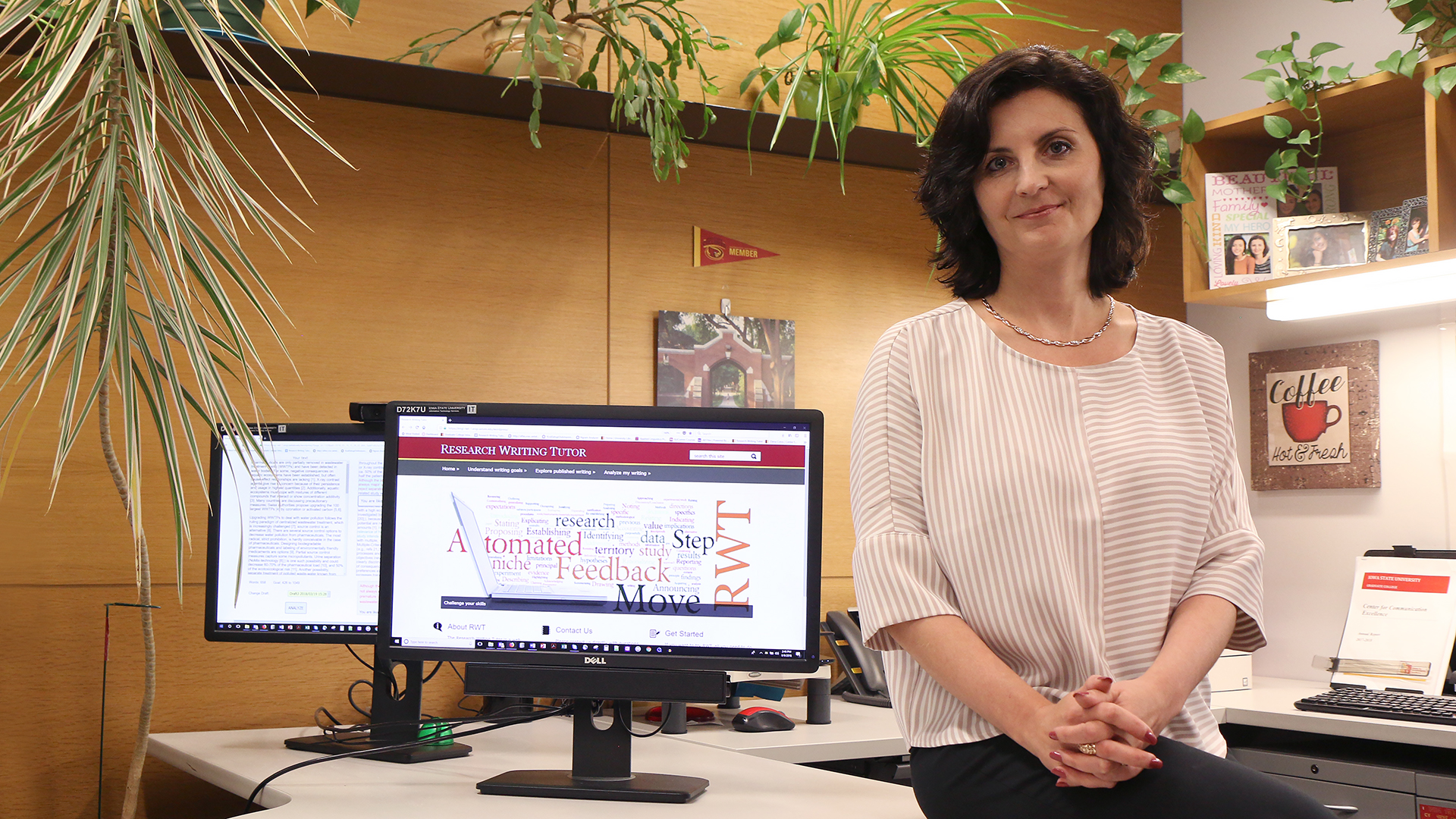
Linguistics and computer science may seem like an unlikely pair, but these fields thrive in a symbiotic interdisciplinary relationship at Iowa State University, thanks to the Applied Linguistics and Technology program.
The Applied Linguistics and Technology program focuses on using technology to investigate language problems, from computer assisted language learning to automated writing evaluation.
“Imagine you are a student writing a research article for publication or a chapter for your thesis or dissertation and you put your introduction section into a software and it analyzes it,” said Elena Cotos. “Then it returns the text with feedback that’s comparing your text with research articles published in your field and it tells you what writing strategies you might want to use to improve the quality of your text.”
Cotos, assistant professor of English and Director of the Graduate College’s Center for Communication Excellence, is describing the Research Writing Tutor that she has developed through her work, just one example of the state-of-the-art computational linguistic projects developed at Iowa State.
The Research Writing Tutor came from Cotos’ dissertation work, where she developed and evaluated an automated feedback tool based on genre writing, specifically for introductions to research articles.
She has since expanded the tool to evaluate a full research article, and is currently working on expanding it to other genres such as grant proposals and academic job application materials.
Graduate students at Iowa State are already benefitting from Cotos’ work through use of the Research Writing Tutor in graduate writing courses, writing workshops, and one-on-one writing consultations provided through the Center for Communication Excellence.
This tool helps students identify what faculty often struggle to articulate.
“Faculty say ‘I know there’s something wrong with this student’s article, I just don’t know how to say exactly what it is.’” Cotos said. “The software articulates specific rhetorical strategies, explains what they are and provides a lot of examples.”
The goal-orienting feedback is based on computational analysis of published writing in a wide range of disciplines. It evaluates students’ submitted work based on standards in their field and reports on what is missing or underdeveloped compared to other works published in the discipline.
“We’ve had a lot of positive feedback from professors saying that this is a great tool for students,” Cotos said. “Many faculty members are actually saying ‘I want to use it for myself as well.’”
Many students attribute their publication success in part to the help of the Research Writing Tutor.
Examples of other projects include using computational analysis of writing to improve systematic reviews or using an analysis of the writing process to guide students in learning to write in a new language.
“The uniqueness of combining linguistics and computer science the way the Applied Linguistics and Technology program does is in leveraging the power of computers to grow the depth of linguistic investigation and make a stronger impact on real-world problems through technological innovations,” Cotos said.
Cotos said the interdisciplinary research agenda will have immediate practical value for Iowa State students.
“The students in our program, by being exposed to the methods and tools of both disciplines, have exceptional opportunities for scientific study of various types of linguistic and language learning phenomena from a computational perspective,” Cotos said. “The stepping stones they attain by applying their computational linguistics skills can shape their careers and potentially the future of our field in dramatic ways.”